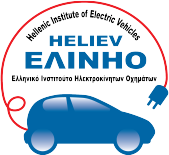Discover HELIEV
The Hellenic Institute of Electric Vehicles (HELIEV) was established with the aim of promoting and supporting the development of electromobility in Greece. Since its founding, the Institute has played a crucial role in shaping policies, improving legislation, and educating the public about the benefits of electric vehicles.
HELIEV collaborates with universities, research centers, and private entities to create innovative solutions that support electric vehicle adoption, charging infrastructure, and renewable energy sources.


Historical Overview
The need to shift towards electromobility emerged in Greece in recent years, following the global trend of reducing carbon emissions and adopting sustainable practices. EL.IN.I.O. was established to support these efforts, contributing to the development of a long-term strategy for promoting electromobility.
The Institute operates in various sectors, including research, education, business support, and providing advisory services to the Greek government on electromobility technologies. Through collaborations with universities, research centers, and private entities, EL.IN.I.O. develops innovative solutions to promote electric vehicles, charging infrastructure, and renewable energy sources.
Fields of Action
Education & Awareness
HELIEV offers educational programs and awareness campaigns to promote electromobility. It organizes seminars, conferences, and exhibitions on new transport technologies.
Legislation & Policy Support
The Institute collaborates with governmental bodies to shape policies favouring electromobility, providing advisory services for sustainable transport strategies aligned with EU carbon reduction targets.
Technological Innovation
HELIEV works with research organizations to develop new technologies for electric vehicles and charging infrastructures, focusing on improving energy efficiency and integrating renewable energy sources.
Charging Infrastructure
One of HELIEV’s key objectives is developing an extensive charging network in Greece by supporting both public and private investments to meet the growing demand for electric vehicles.
European Collaborations
The Institute participates in EU programs and projects promoting electromobility. It collaborates with other European entities to share knowledge and develop joint strategies for sustainable transport.
Q&A
about Electric Mobility
in Greece
1. What is electric mobility?
Electric mobility involves using electric vehicles (EVs) powered by electricity stored in batteries instead of traditional fuels.
2. What are the benefits of electric mobility?
3. What charging infrastructure is available in Greece?
4. What is the difference between AC and DC chargers?
5. How can I charge my electric vehicle at home?
6. What is the average charging time for an electric vehicle?
Charging time depends on the charger type and battery capacity. AC charging takes 6-8 hours, while DC charging takes 30-60 minutes.
7. How does electric mobility affect Greece's electrical grid?
8. How much does it cost to charge an electric vehicle?
9. Are there incentives for purchasing an electric vehicle in Greece?
10. What are the prospects for the development of electric mobility in Greece?
With rising demand for EVs and ongoing investments in charging infrastructure, Greece aims for significant growth in EV adoption in the coming years.

